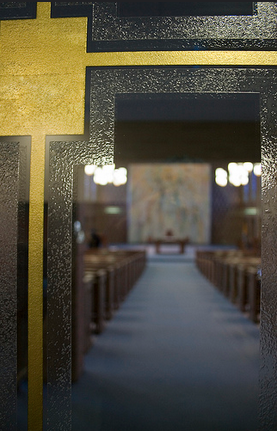The Madison Catholic Diocese is focusing its efforts on raising funds to help train future priests.
The Diocese will need to raise $30 million to reach their goal of educating current and future seminarians — students attending a college to become a priest.
Roughly 80 percent of the funding will go to direct assistance, which consists of tuition, room and board, Brent King, spokesperson for the Madison Catholic Diocese, said. There are direct and incremental parts to educating the men entering the Diocese, which requires a large amount of the funding, he said.
The other 20 percent will be used for the office of vocation where full time priests and employees help with the enrollment processes, King said. The office also provides guidance to women interested in becoming a nun.
The funding is important because it is not just about an education for a group of young men, William Yallaly, associate director for the Madison Catholic Diocese, said; it is about a vocation, which shapes a man’s life.
“When we are using the money to fund seminarian education, in fact, that’s going to a much broader spectrum of things than just classroom-type, intellectual formation,” Yallaly said. “It’s going for spiritual formation, to emotional and interpersonal formation, really to round the person out and prepare them for a life of service to the whole person.”
The seminary enrollment process is equally intricate as it is lengthy, King said.
It begins with the applicant, typically a young man, approaching the director of vocations to talk about their intentions, King said. A period of months or years worth of discussion pass, and afterwards, the man decides whether or not he will formally apply, he said.
The formal application consists of hundreds of questions, including essays.
“Questions range from ‘where a man is humanly, where a man is spiritually, where he is psychologically,’” said King. “There are a lot of essays and a lot of questions so we can flesh out where a man might be.”
Their paperwork then goes to the review board where a panel of priests and non-clergy members interview the candidate, King said. Thereafter, the board will make a recommendation to the bishop, which determines whether or not the man might be accepted as a seminarian into the Diocese.
The bishop himself and the priests have made it a priority to increase their number of seminarians, and believe it is working, King said, with the number of seminarians seeing a steady uptick in enrollment from six in 2003 to 33 currently.
The overall need for the endowment is to fund the formation of the men answering the call to priesthood, King said.
There are many variables which could explain the recent surge in interest in becoming a priest, Yallaly said.
“I think one very good reason, in my opinion, is that there is more of a desire, especially around young people, to live for something greater than themselves,” Yallaly said. “I think especially those guys of college age, or those guys who have graduated and have gotten into careers, are looking for that fulfillment that comes with dedicating their lives to something more than themselves.”












